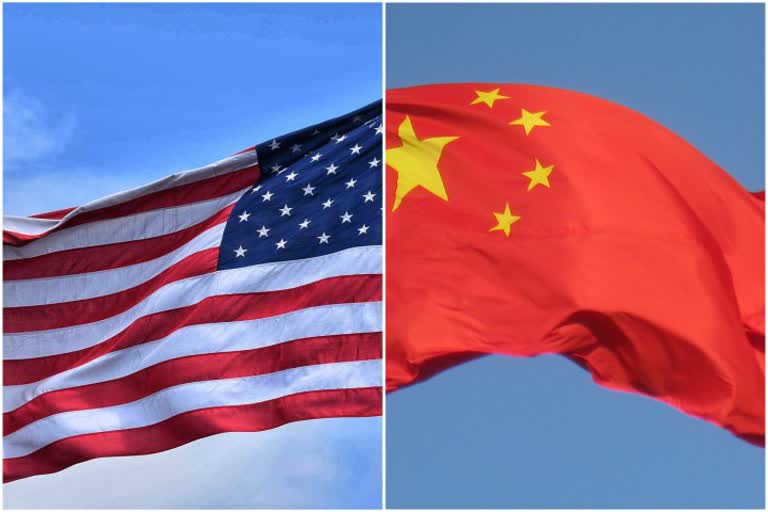Beijing: Chinese state media on Wednesday dangled the threat of cutting exports of rare earths to the United States as a counter-strike in the trade war, potentially depriving Washington of a key resource used to make everything from smartphones to military hardware.
The warning is the latest salvo in a dispute that has intensified since President Donald Trump ramped up tariffs against China and moved to blacklist telecom giant Huawei earlier this month, while trade talks have apparently stalled.
Huawei stepped up its legal battle on Wednesday, announcing it had filed a motion in US court for summary judgment in its bid to overturn US legislation that bars federal agencies from using its equipment over security concerns.
Beijing had already dropped a big hint that rare earths could be in the firing line by showing images last week of President Xi Jinping visiting a rare earths factory in Ganzhou, central China.
An unnamed official from the National Development and Reform Commission, China's state planner, issued a cryptic warning late Tuesday.
"You asked whether rare earths will become China's countermeasure against unwarranted suppression from the US. What I can tell you is that if anyone wants to use products made from our rare-earth exports to curb and suppress China's development, I'm sure the people of Ganzhou and across China will not be happy with that," the official said in answers to questions published by state media.
The official said rare-earth resources should "serve domestic needs first" but China is also willing to meet the "legitimate needs of countries around the world".
Shares in rare earth companies surged in the Shanghai and Shenzhen stock markets during Wednesday trading.
State media were blunter.
"Waging a trade war against China, the United States risks losing the supply of materials that are vital to sustaining its technological strength," the official Xinhua news agency said in a commentary.
The state-owned Global Times tabloid warned in an editorial posted online that the "US will rue forcing China's hand on rare earths".
"It is believed that if the US increasingly suppresses the development of China, sooner or later, China will use rare earths as a weapon," the nationalist tabloid said.
China produces more than 95 per cent of the world's rare earths, and the United States relies on China for upwards of 80 per cent of its imports.
Rare earths are 17 elements critical to manufacturing everything from smartphones and televisions to cameras and lightbulbs.
Read more:Pakistan extends its airspace ban for Indian flights till June 14
Beijing could hurt US companies in what is shaping up as a battle for who will dominate the future of high-tech.
Huawei took the US to court over a defence bill passed by Congress last year that bans government agencies from using its equipment. But it also faces a recent Trump administration order that cuts it off from critical American-made components for its products.
"The US government has provided no evidence to show that Huawei is a security threat," Huawei's chief legal officer Song Liuping told reporters, rejecting US warnings that the company's equipment could be used by China to spy on other countries.
China has been accused of using its rare earth leverage for political reasons before.
Japanese industry sources said it temporarily cut off exports in 2010 as a territorial row flared between the Asian rivals, charges that Beijing denied.
But experts say the Japan experience showed that China may not have such strong leverage.
"Even with such apparently favourable circumstances, market power and political leverage proved fleeting and difficult to exploit," according to a 2014 report by the Council on Foreign Relations think tank written by University of Texas professor Eugene Gholz.
The report said China's advantages were already slipping away in 2010 due to normal market behaviour, including increases in non-Chinese production and processing capacity, and innovations that have contributed to reducing demand for some rare earth elements.
Analysts have said China appears apprehensive of targeting the minerals just yet, possibly fearful of hastening a global search for alternative supplies of the commodities.
The Global Times acknowledged that using rare earths as leverage could be risky.
"If China decides to ban rare earths export to the US, it would produce complex effects, including incurring certain losses on China itself," it said.
"However, China also clearly knows that the US would suffer greater losses in that situation."



